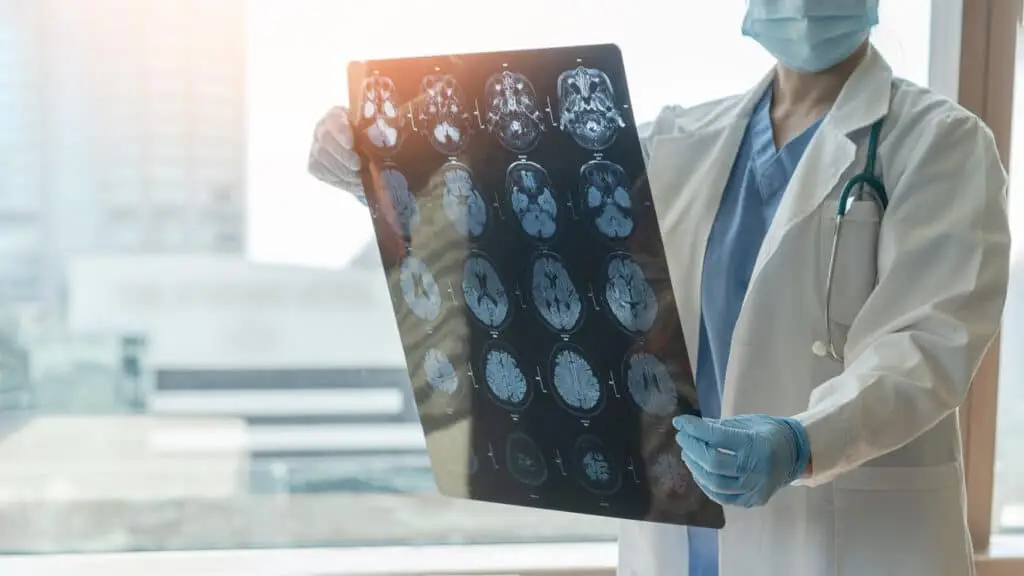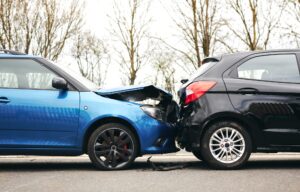Table of Contents
ToggleDelayed Concussion Symptoms
Many people do not automatically associate concussions with traumatic brain injuries, but that’s what they are. Medically speaking, a concussion constitutes what is known as a “mild traumatic brain injury,” or mTBI.
If you are familiar with mTBIs, you know that symptoms don’t always manifest immediately. This is why obtaining medical treatment right after an accident is paramount for your safety and well-being.

If you have recently been in an accident and are wondering if you have a concussion, here are some of the most prominent delayed concussion symptoms to be aware of.
What Causes a Concussion?
Concussions occur when the brain makes contact with the interior of the skull and incurs tissue damage. This impact is usually the result of a severe blow to the head or body.
Concussion symptoms are common with the following incidents:
- Violent crime, including assault and domestic abuse
- Contact sports, even with a helmet
- Falls, including those involving hard surfaces or extensive heights
- Car accidents
- Motorcycle accidents
- Combat-related accidents
- Other situations involving blunt force trauma to the head or body
If you have been involved in any of the incidents above, it is a good idea to check in with your medical provider to ensure you do not have a concussion.
What Are Some Symptoms of a Concussion?
Concussion symptoms fall into four categories: cognitive, emotional, physical, and sleep-related symptoms. Here are some signs of each category:
- Feeling like the world is moving in slow motion
- Problems formulating coherent thoughts
- Issues with concentration, even for short intervals
- Blurred vision
- Headaches
- Nausea
- Dizziness
- Problems with balance
- Light sensitivity
- Noise sensitivity
- Irritability
- Prolonged sadness
- Loss of energy
- Excessive anxiety
- Insomnia
- Increased sleep
As you may have noticed, some of these symptoms, such as increased sleep and insomnia, are contradictory. Further complicating matters is the fact that you could be suffering from just one of these symptoms or a combination of them. It is, therefore, important to undergo evaluation from an experienced medical provider.
What Are Delayed Concussion Symptoms?
If you have sustained a concussion, you will likely exhibit symptoms immediately. However, this isn’t always the case. If you do not develop symptoms at the time of your injury, they could still manifest later on as a delayed concussion.
Sometimes it can take days or weeks for symptoms to develop. During this time, the manifestation of symptoms does not necessarily mean the injury is getting more severe.
It could mean that the brain is healing itself and that what you are experiencing is your body adapting to the change. However, it is best to undergo an evaluation from a qualified medical professional rather than self-diagnosing.
The symptoms of a delayed concussion are identical to the list in the previous section, with the most prominent being memory issues, fatigue, headaches, and sleep problems.
What is Post-Concussion Syndrome?
Delayed concussion symptoms are related to post-concussion syndrome, which is when concussion symptoms last longer than a month. Some people have reported post-concussion syndrome symptoms lasting for over a year.
Medical experts suspect post-concussion syndrome results from changes in the brain following the initial moment of impact.
Re-Injury After a Concussion
When you undergo your initial evaluation following a concussion, the doctor will likely tell you to rest and not strain yourself. This is good advice to follow, as research shows that the chances of incurring a second concussion after an initial concussion are quite high. This is especially true if your brain has not recovered from the initial concussion.
Since the symptoms of a delayed concussion are not immediately apparent, sustaining a second concussion on top of the first one could result in more damage. The risk of a second concussion is a primary reason why doctors will tell you to avoid any strenuous activities that could potentially lead to further injury.
Re-injuring yourself while you have a concussion can result in dire consequences, including severe brain damage. In addition to further damaging the brain and killing brain tissue, additional injuries can cause more severe symptoms. In these situations, the symptoms are often debilitating and life-changing.
What is Chronic Traumatic Encephalopathy?
If you suffer regular concussions for a prolonged period of time, you could develop advanced health problems. Researchers believe there is a close link between repeated brain injuries and chronic traumatic encephalopathy (CTE).
If you follow professional American football, you’ve likely heard of CTE. It is a progressive degenerative brain disease that emerges after repeated brain injuries. Researchers believe that, in addition to severe concussions, CTE can also be caused by repeated microtrauma.
Medical experts believe that repeated injury to the brain causes it to develop excessive quantities of a protein called tau. High levels of tau can cause cognitive, emotional, and physical problems. Unfortunately, more research is needed before scientists can make a definitive judgment.
Here are some of the most reported symptoms of chronic traumatic encephalopathy:
- Confusion
- Memory loss
- Impaired judgment
- Aggression
- Unbridled impulsive behavior
- Thoughts of suicide
- Depression
- Dementia
Currently, chronic traumatic encephalopathy can only be diagnosed after the patient’s death. To diagnose CTE, doctors must perform an autopsy on the brain. However, if the patient is exhibiting symptoms while alive, doctors can presume they have CTE and implement a treatment plan.
Sadly, patients who have CTE might not know what it is. Many people mistake it for dementia or Alzheimer’s. While there are similarities, CTE can occur much earlier in life and manifests alongside symptoms like decreased reasoning, errors in judgment, increased aggression, and issues with controlling impulses.
Delayed Concussions and Your Legal Rights
A delayed concussion can take a considerable toll on your life. From your finances to your emotions, the symptoms of a delayed concussion can impact you in unexpected ways. If someone else’s negligence caused your concussion, you might have legal recourse.
For example, if you sustained a concussion after a car wreck caused by another driver’s negligence, you have the legal right to file a claim against that driver and seek compensation. While filing a lawsuit seems like a lot of work, obtaining the compensation you deserve can help you treat and adapt to your condition.
Contact Our Brain Injury Law Firm in Los Angeles, CA
If you were injured in an accident in Los Angeles, CA or you lost a loved one and you need legal assistance, please contact us to schedule a free consultation. One of our Los Angeles car accident lawyers at M&Y Personal Injury Lawyers will get in touch with you soon.
M&Y Personal Injury Lawyers – Los Angeles Office
4929 Wilshire Blvd Suite 960,
Los Angeles, CA 90010
866-864-5477
M&Y Personal Injury Lawyers – Downtown Office
350 S Figueroa St Suite 276
Los Angeles, CA 90071
(877) 751-8953




